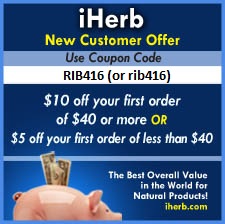The Difference Between Organic Foods And Natural Foods
|

|
When it comes to food products, is there a difference between what’s labeled as “natural” and what’s labeled as “organic”?
This article, which I first wrote and published on another website in 2008, discusses the differences.
Distinguishing Natural and Organic Foods
With an increase in awareness on the importance of good, clean foods, the demand for natural and organic foods has also risen. Correspondingly, food manufacturers and food sellers, aware of the human psyche and intelligent enough to capitalize, have taken to labeling their products as “natural” or “all natural”.
If you realize, more and more food products are being labeled as “natural”, “all natural” or “100% natural” nowadays.
You could say they are doing this out of sheer opportunism, or you could even say they are deliberately misleading and misinforming consumers.
Either way, do be careful. “Natural” does not mean “organic”. It does not mean clean. It does not even mean the foods are really natural.
Examining the meaning of “natural” foods
For one thing, there is very little regulation or control, if any at all, on the use of the term “natural”. Little is also done to verify the “natural” claims of food makers.
Food manufacturers know this is a very strong selling point, so they freely use the word. In truth, “natural” does not mean the food product is free of chemicals or harmful additives, and food manufacturers and sellers are able to quite freely abuse this loophole.
Food products which are labeled as “natural” often contain unnatural ingredients, such as pesticides, MSG and synthetic nutrients, and are often manufactured using unnatural and harmful methods.
“Natural” simply means something exists in or is produced by nature, and is not artificial or man-made.
Something may originally be “natural”, i.e. it came from nature, but once humans start to tamper with its chemical structure, or do funny things with the food in the production process, then it takes on a different form altogether. In other words, it can become unnatural and harmful thereafter. This is one key difference between foods which are called natural and organic foods which are produced in a clean and desirable manner.
In fact, saying it is “natural” doesn’t even mean the food is beneficial. Think about it – cow dung, other animal manure and poisonous mushrooms are “natural” too, yet, we wouldn’t eat them, would we?
“Organic” is much better
On the other hand, in today’s context, saying a food is “organic”, or that it is “organically certified”, means that it meets certain high standards, which are stringently administered and regulated. In my mind, it means the food concerned is clean, natural and health-promoting, with no harmful chemicals added.
That’s good stuff.
For more information, click here to read about what are organic foods, or click here to read about the definition of organic food.
Conclusion
The way I see it, “natural” is a subset of “organic” – a food which is organically certified should be grown and produced in a natural manner, using natural practices and methods, without the addition of harmful chemicals, nor the employment of methods and practices which are detrimental to humans and the environment alike.
On the flip side, something which is “natural” can be, well, anything, really.
I would, without any qualms, go for a “natural and organic food”.
However, when it comes to foods which are just labeled as “natural”, “100% natural” or “all natural”, I would exercise some caution.
Whatever the case, learn to read food labels, and to decipher for yourself what is desirable and what is not.
Click here to read about buying organic food products.
Click here to read some tips on choosing an organic diet and lifestyle.
|
Follow this site
|



















Recent Comments